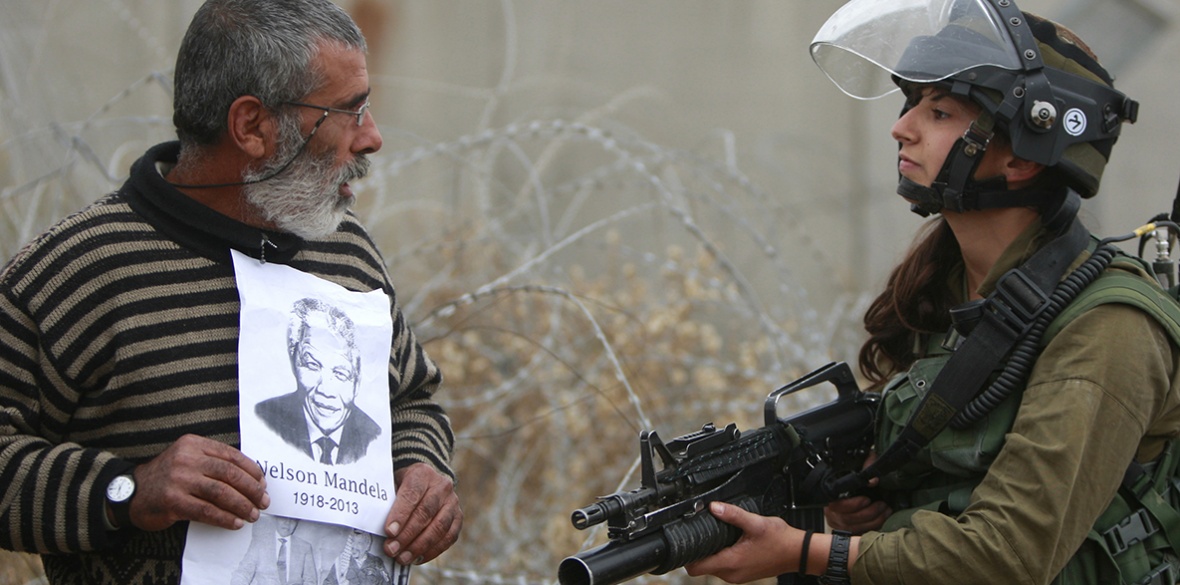AMNESTY International’s condemnation of Israel’s systematic oppression of the Palestinians as apartheid should encourage anti-imperialists and solidarity activists.
It sharpens the contradiction between a growing public recognition of Israel’s state racism and a British state which is becoming ever more heavy-handed in its determination to suppress resistance to this.
Descriptions of this as a “South Africa moment” should evoke not just the international solidarity movement which helped isolate apartheid South Africa but another thing these two racist systems have in common — political, military and diplomatic backing by the British government.
The true character of what the mass media term “the Israel-Palestine conflict” — that this “conflict” consists of the illegal occupation of Palestinian land by Israel, the ethnic cleansing of Palestinians from large swathes of that land by Israel and the treatment of Palestinians in Israel as second-class citizens — has become more obvious as Israeli politics has become increasingly dominated by the hard right.
The consequences are proving explosive within Israel. The general strike across the West Bank, Gaza and by Palestinians in Israel last September showed a new unity and militancy from the resistance.
They are also evident in the growing solidarity movement with Palestinians worldwide, not least in Britain.
Israel’s periodic bombardments of Gaza and ethnic cleansing operations like the attempt to evict families from East Jerusalem’s Sheikh Jarrar neighbourhood provoke large protests. A 2020 survey found Labour Friends of Palestine to be the second-most popular campaigning organisation among members of that party (after the Stop the War Coalition).
Officialdom’s reaction to this grassroots solidarity is to smear and try to ban it. Protesters against the murderous bombing of Gaza last spring were slandered as anti-semites in newspapers like the Telegraph. The picture was even grimmer across the channel where France banned solidarity demonstrations using the same excuse.
This extreme authoritarian response could soon be that of the British state. Not only does the Police, Crime, Sentencing and Courts Bill massively extend the police’s power to outlaw protest, but the Conservative Party is waging a war to drive Palestine solidarity out of universities, threatening institutions that do not adopt the highly contentious IHRA definition of anti-semitism (which critics argue conflates anti-semitism with criticism of Israel) with sanctions.
At a conference last month Tory MP Robert Jenrick promised an “absolute ban” on the boycott, divestment and sanctions movement, while Education Secretary Nadhim Zahawi said last week that people who take up the chant “Palestine will be free, from the river to the sea” at Palestine marches should be referred to the police for supporting Hamas.
The chant has its critics on the left because of the idea that a Palestine stretching from the Jordan to the Mediterranean would replace rather than exist alongside an independent Israel, whereas a two-state solution is the goal of the Palestine Liberation Organisation.
But it would be mad to allow such reservations to blind us to the extraordinary threat to free expression and democratic protest Zahawi is proposing.
The Tories’ attempt to suppress free speech on Palestine will not be resisted by Labour.
For its new leadership enthusiastic support for Israel is seen as a way to showcase its rejection of anti-imperialist politics and loyalty to a US-policed world order, and it must be added that, from the Assange case to internet censorship, the Keir Starmer team show scant regard for free speech on any topic.
But it can and will be resisted on the streets, in our universities, through our trade union movement. The Amnesty report will be significant in this.
Its backing for an arms embargo on Israel (something backed by Labour members at the party’s conference last year) and sanctions helps undermine the absurd but routine claim that these demands are anti-semitic.
It must now be used to prompt a serious campaign against ministers’ attempts to criminalise Palestine solidarity.












